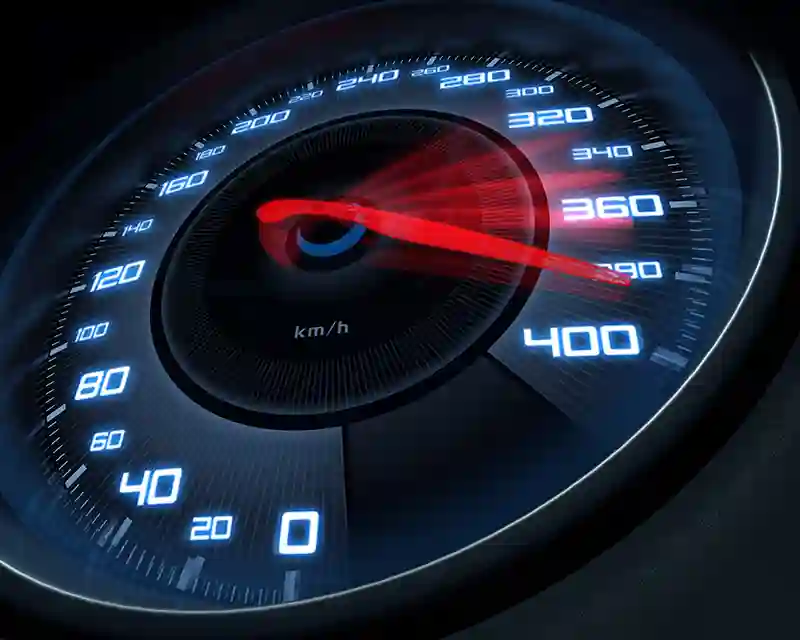If your WordPress website is slow, you’re losing money. This is because a slow website can frustrate your audience and cause you to lose business.Today, we’re going to show you how to improve your website speed and boost your sales. We’ll cover everything from improving your hosting to using caching plugins. So, whether you own a small business or a large website, read on for tips on how to speed up WordPress.
Use a caching plugin to store a copy of your website’s pages on the visitor’s computer
As any web developer knows, reducing the amount of time it takes for a page to load is essential for providing a good user experience. One way to reduce loading times is to use a caching plugin, which stores a copy of your website’s pages on the visitor’s computer. When a visitor requests a page, the caching plugin will serve the cached version instead of having to generate the page fresh each time. This can result in significant savings in terms of both time and resources. Caching plugins are particularly beneficial for websites with high traffic levels or those that receive large numbers of simultaneous requests. In such cases, the caching plugin can help to ensure that your website remains responsive and fast.
Optimize your images for faster loading times
When it comes to your website, speed is essential. Studies have shown that even a one-second delay in loading times can result in a significant drop in traffic. And one of the biggest factors affecting loading times is image size. Optimizing your images for the web can help to improve your site’s performance and keep visitors coming back for more.
There are a few key things to keep in mind when optimizing your images. First, consider the file format. JPEGs are generally best for photographs, while PNGs are better for images with text or line art. Second, make sure to save your images at the correct resolution. resolution for the web is usually 72 pixels per inch, which is significantly lower than the 300 pixels per inch used for print. Finally, remember to compress your images before uploading them to your site. This will help to reduce their file size without adversely affecting quality. By following these simple tips, you can help ensure that your images load quickly and smoothly, keeping your website visitors happy and engaged.
consider using an image optimisation plug-n like Smush
Minimize the number of plugins you use on your website
As a website owner, you want your site to be fast, responsive, and easy to use. Unfortunately, those goals can be difficult to achieve if you’re relying on too many plugins. Plugins are pieces of code that add functionality to your site, but they can also slow down your loading times and create potential security vulnerabilities. For those reasons, it’s important to minimize the number of plugins you use on your site. Instead of relying on multiple plugins to provide basic functionality, look for ways to streamline your code. You may also want to consider using a plugin management system that can help you keep track of which plugins are active on your site. By taking these steps, you can help ensure that your site is running at its best.
Choose a web host that is optimized for WordPress websites
WordPress is one of the most popular website builders on the market, and for good reason. It’s user-friendly, versatile, and relatively affordable. However, not all web hosts are created equal. If you’re looking to create a WordPress website, it’s important to choose a host that is specifically optimized for WordPress. At Eirhost we specialise in supplying fast WordPress hosting ensuring that your website is online and loading quickly at all times.
Add expires headers to static files like CSS and JavaScript
Adding expires headers to static files can be a simple and effective way to improve website performance. By setting an expiration date for these files, the browser can choose to cache them rather than loading them from the server each time the page is accessed. This can reduce server load and bandwidth usage, as well as speed up page loading times. In addition, it can also help to improve search engine optimization, as cached files are often given a higher priority by search engines. While expires headers are not required for all websites, they can be a helpful tool for those seeking to optimize their site for speed and efficiency.
Here is some example code you can use to add this to your .htaccess file
<IfModule mod_expires.c>
ExpiresActive On
ExpiresByType image/jpeg "access plus 1 year"
ExpiresByType image/gif "access plus 1 year"
ExpiresByType image/png "access plus 1 year"
ExpiresByType image/webp "access plus 1 year"
ExpiresByType image/svg+xml "access plus 1 year"
ExpiresByType image/x-icon "access plus 1 year"
ExpiresByType video/mp4 "access plus 1 year"
ExpiresByType video/mpeg "access plus 1 year"
ExpiresByType text/css "access plus 1 week"
ExpiresByType text/javascript "access plus 1 month"
ExpiresByType application/javascript "access plus 1 month"
# Others
ExpiresByType application/pdf "access plus 1 month"
</IfModule>
Enable compression to reduce the size of page requests
When a user visits a website, their browser sends a request to the server for the desired page. The server then sends the HTML code for the page back to the browser, which renders it for the user. For pages with a lot of content, this process can take some time. One way to speed it up is by using compression. By compressing the HTML code before sending it back to the browser, the server can reduce the amount of data that needs to be transferred. This can reduce both the time it takes for the page to load and the amount of bandwidth used. As a result, enabling compression can have a significant impact on a website’s performance. Plugins such as wp-supercache can
By following the tips in this article, you can speed up your WordPress website and improve your user experience. A faster website will lead to better search engine rankings and more sales. If you need help fast hosting for your WordPress site, contact us today.


